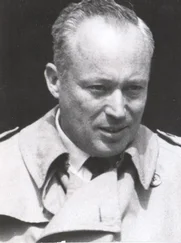Armageddon - Leon Uris
Здесь есть возможность читать онлайн «Armageddon - Leon Uris» весь текст электронной книги совершенно бесплатно (целиком полную версию без сокращений). В некоторых случаях можно слушать аудио, скачать через торрент в формате fb2 и присутствует краткое содержание. Жанр: Старинная литература, на английском языке. Описание произведения, (предисловие) а так же отзывы посетителей доступны на портале библиотеки ЛибКат.
- Название:Leon Uris
- Автор:
- Жанр:
- Год:неизвестен
- ISBN:нет данных
- Рейтинг книги:4 / 5. Голосов: 1
-
Избранное:Добавить в избранное
- Отзывы:
-
Ваша оценка:
- 80
- 1
- 2
- 3
- 4
- 5
Leon Uris: краткое содержание, описание и аннотация
Предлагаем к чтению аннотацию, описание, краткое содержание или предисловие (зависит от того, что написал сам автор книги «Leon Uris»). Если вы не нашли необходимую информацию о книге — напишите в комментариях, мы постараемся отыскать её.
Leon Uris — читать онлайн бесплатно полную книгу (весь текст) целиком
Ниже представлен текст книги, разбитый по страницам. Система сохранения места последней прочитанной страницы, позволяет с удобством читать онлайн бесплатно книгу «Leon Uris», без необходимости каждый раз заново искать на чём Вы остановились. Поставьте закладку, и сможете в любой момент перейти на страницу, на которой закончили чтение.
Интервал:
Закладка:
Springtime, Berlin 1939
Ernestine held the tiller steady while Dietrich Rascher took down the sail and dropped anchor. The dark-green mass of the Grunewald and the shoreline was far away. Ernestine could not conceal her joy that the two of them were able to slip away together from the rest of the Group.
How handsome Dietrich is, she thought. How deftly he moves about the boat. How beautiful his face is. Kind and thoughtful, with puppy-dog eyes.
She looked back to the shore with a twinge of guilt. The Group would be singing Nazi Youth songs. Today there was a lecturer from the party. The devil with it. It was much nicer in the middle of the lake with Dietrich Rascher.
He slipped alongside her. Dietrich could hardly control his pride. Today he had been made senior leader for the entire Dahlem District of Hitler Youth. At the age of nineteen this was quite an honor.
“Let’s don’t go back,” Ernestine said wistfully, “ever, ever, ever. Let us set sail and blow right off the Wannsee up the canal to the North Sea, and then over the oceans to the South Seas.”
“A romantic notion that conflicts with tonight’s lecture.”
“Don’t you ever forget Hitler Youth, even for a moment?”
He shook his head. “Sometimes, Ernestine, I swear I have a feeling you don’t even want to belong to the Group.”
“Oh, but I do, very much. That way I can get to see you more often.”
“Don’t tease about such serious matters. You seemed eager enough to join in the first place.”
“Well, of course, I had to. And then Father ordered Hilde, my brother Gerd, and me to be enthusiastic.”
“Ach.”
“I’m sorry, Dietrich. I know how much this means to you and I shouldn’t tease, but I suppose I’m jealous.”
He sucked in a deep breath, decided to be indulgent, then turned to her and took her hands. “I asked you to sail out here with me today because I have a secret. I am sharing it with no one in the world but you. Ernestine,” he paused proudly, “I have made application for officer’s training in the SS. I think I will be accepted.”
A strange silence brought only the sound of lapping water. The confusion in her angered him. “I was hoping you would be proud,” he snapped.
“I love you, Dietrich.”
“But you don’t see what an honor it is.”
She only shook her head. One was not allowed to say what one truly thought in these matters. The reaction upset him. He gripped her shoulders excitedly. “The Fuehrer has done so much for us, Ernestine. Until he came we Germans had been beaten into the dirt. He said ... lift your heads ... be proud to be Germans. He has given us bread and jobs and land and our pride.”
Ernestine squirmed uncomfortably at his tightening grip, his sudden burst of fanaticism. “We must give back to the Fuehrer what he has given us by obedience. We Germans are the only people in the world capable of giving the devotion demanded of the Aryan race.”
The words had been pounded into her brain since memory. Dietrich recited them well, as any Hitler Youth Leader must. He watched her shrink away and dropped his hands from her. “What do women know of politics,” he snapped. “You should be even more grateful for what Hitler has done for German womanhood.”
And then, nothing.
“Well, for God’s sake, say something!” he demanded.
“You were so kind and gentle when we first met. I don’t want you to lose that.”
He was moved by the hurt in her and he touched her hand softly, lifted it to his lips and kissed it, and she managed a weak smile. “Ernestine ... I love you. And I trust you alone in this world. Here, in the middle of the Wannsee I can say some things that I hate myself for thinking about. There are some things about being a Nazi I have not made peace with. I do not like having to spy on my parents because of a few things in their past. They are old and harmless. Sometimes ... I even feel sorry about a Jewish friend I had.” The sound of his own confession annoyed him; he added quickly, “But we must accept the fact that there are a few unpleasant duties we must perform and we must obey without question. It is small enough a price for what Hitler is giving Germany.”
“I was advised by my councilor to offer my body to you to produce an Aryan child. Do you think that it’s right that we have a child now?”
“I have told you that even Hitler cannot order me to violate you.”
Ernestine softened and cuddled in his waiting arms and thought ... he will never really be an SS officer, in his heart, so long as I continue to own it.
An unwelcome breeze came up. Dietrich raised the sail, pulled up the anchor, and swung the boat away from Potsdam toward the Grunewald encampment.
“Sometimes, Ernestine, I get a strange feeling that you really don’t believe in the Nazis.”
“Of course I do, Dietrich. There is so much happiness in the people these days. I have seen the joy it has brought into my own home with Gerd and my mother and father. I see how much better life is ... only ...”
“Only what?”
“I do have an uncle in the Schwabenwald Concentration Camp.”
“No one blames your family. Ulrich Falkenstein was a traitor to the German people.”
“No, Dietrich,” she answered softly, “he was a good man and he loved Germany very much. I am not permitted to speak his name, but I cannot be made to forget him, either, and I cannot believe he is a traitor.”
“Men like Ulrich Falkenstein would have kept Germany a paupers’ state. They were weak in their illusions of democracy. Germany must be strong.”
“What bothers me, Dietrich, is that I have questions about Uncle Ulrich and about the Jews. I have questions about God and many other things, and I wish I knew where I could go to find another answer.”
“To be a German today is to understand Germany’s destiny.” You must believe without question ... believe without question ... believe without question... .
Now only a muted breathing of numbed people could be heard in the Falkenstein cellar. For two hours the American Eighth Air Force from England dumped nearly a thousand tons of bombs on Berlin, and as the last of their flights faded from hearing, the first of the motors of the American Fifteenth Air Force from Italy began to drone above them.
Hildegaard had collapsed. Frau Falkenstein was glassy-eyed. Only Bruno Falkenstein issued small weak curses against the Americans, for Ernestine was completely immersed in memory. Remembering always helped during the long days and nights in the cellar.
A year had passed since Dietrich Rascher was accepted into SS Officers’ Training at Schwabenwald Concentration Camp. He had returned to Berlin. War was with them. As a new SS Untersturmfuehrer it was a certainty he would be leaving for Poland or the occupied countries soon.
Dietrich stared sullenly from the hotel window through streaking rain down to the Kurfurstendamm. Behind him, he could hear “The Faithful Hussar” tinkle from the music box. He had brought it home to Ernestine as a gift. It was hand-carved in the Black Forest with dainty little figures of olden Prussian horsemen of Frederick the Great, and the music works were imported from Switzerland.
It should have been a moment for great happiness, but Dietrich was miserable. People below scurried along, hugging the buildings to keep dry—except for a pair of jack-booted Nazis who swaggered in the middle of the sidewalk in defiance of the rain.
Dietrich wanted to explain ... words stuck in his throat. He wanted to tell Ernestine what the year had been like in the SS school; he wanted her to know all about the brutal training, the punishments, and the “practical work” with the prisoners inside the concentration camp. He had learned to become a bully and to terrorize. And now he had come home and had taken Ernestine with a same lack of conscience.
Читать дальшеИнтервал:
Закладка:
Похожие книги на «Leon Uris»
Представляем Вашему вниманию похожие книги на «Leon Uris» списком для выбора. Мы отобрали схожую по названию и смыслу литературу в надежде предоставить читателям больше вариантов отыскать новые, интересные, ещё непрочитанные произведения.
Обсуждение, отзывы о книге «Leon Uris» и просто собственные мнения читателей. Оставьте ваши комментарии, напишите, что Вы думаете о произведении, его смысле или главных героях. Укажите что конкретно понравилось, а что нет, и почему Вы так считаете.











